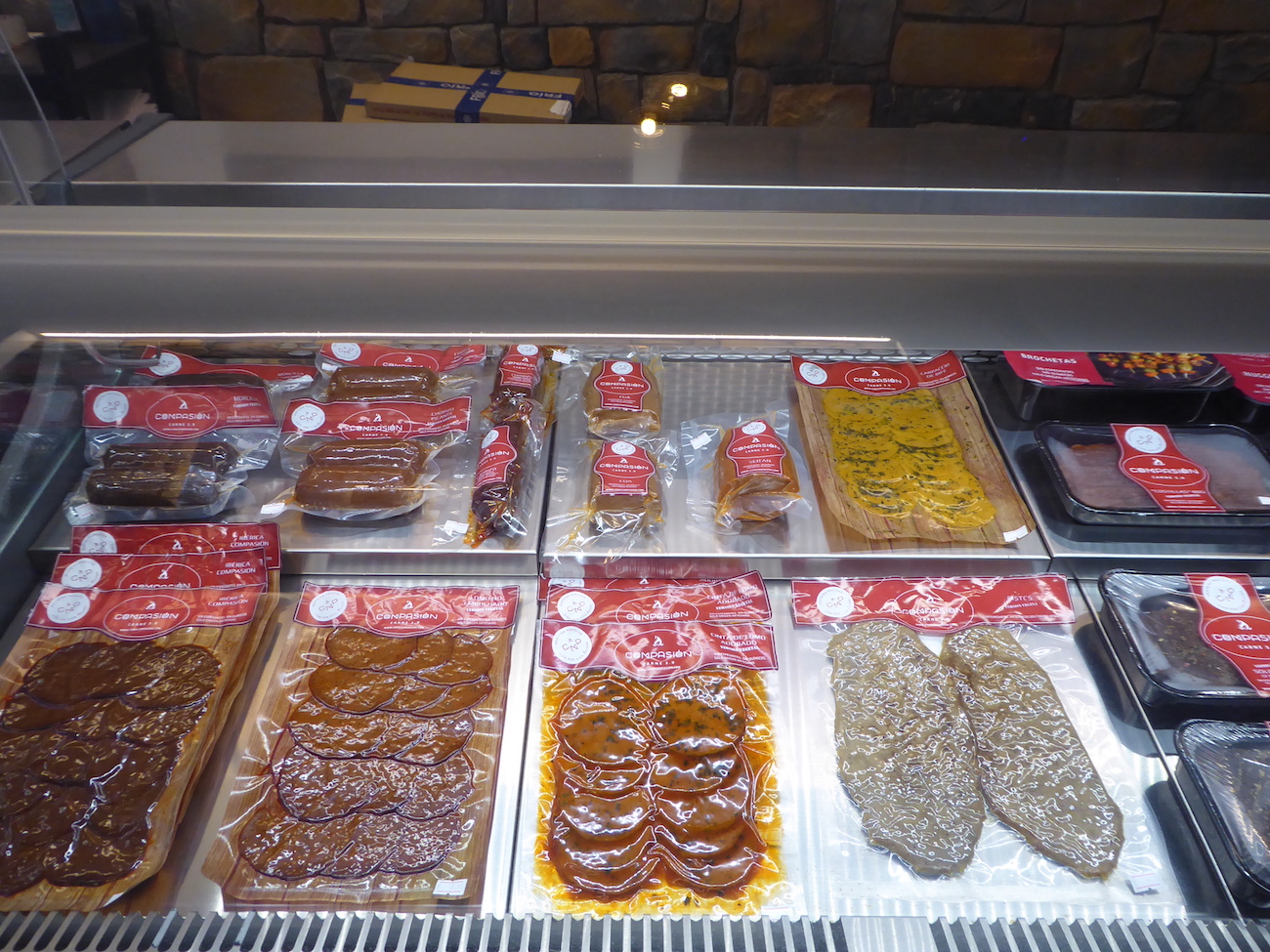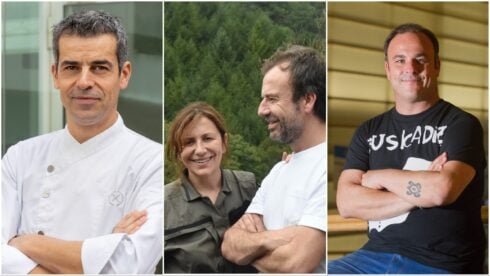A RASH of shops selling plant-based products under the guise of animal fare may persuade Spaniards to cut back on meat consumption, though it promises to be an uphill battle, writes Heather Galloway.
While the Spanish meat industry is getting in a stew over the suggestion we might reduce our meat consumption for the good of the planet, vegan butchers are mushrooming across the country with clever imitations of Spain’s favourite meat-based delicacies, such as spiced sausage (chorizo), black pudding (morcilla), meat balls (albondigas), and a version of Iberico ham in the pipeline.
In fact, fake meat has become so convincing that when three-Michelin -star chef, Ferran Adrià was asked by the Dutch Vegetarian Butcher boss Jaap Korteweg to sample one of his concoctions back in 2011, the unsuspecting culinary legend reportedly declared, “It is a chicken leg. Probably organic or from chickens raised in the south of France.”
One of the thorns in the side of the Spanish meat industry has been precisely the use of names associated with meat for fake-meat products. In September, ultra right party Vox came up with a proposal in Spain’s parliament to ban the use of the word sausage and meat ball –albondiga in Spanish – for vegan variations on these themes.
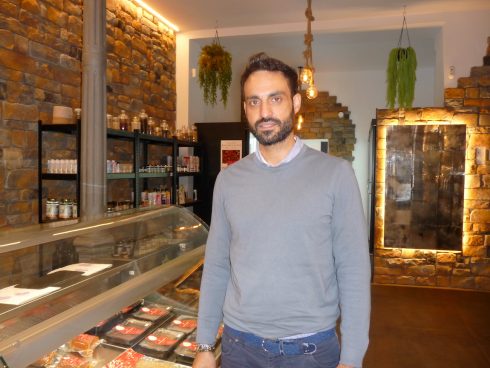
But Eduardo González, co-founder of Compasión (pictured above), the vegan butcher that set up this summer in the trendy Malasaña district of Madrid, believes this is absurd. “When sausages were first on the market, they were made of pig,” he says. “When they started to produce tuna sausages, nobody questioned that they were ‘sausages’. But if we make them with pumpkin or tofu, that is questioned. In fact, it’s not the names they are taking issue with; what bugs them is that we are not part of the merciless food system and customs that exists in Spain.”
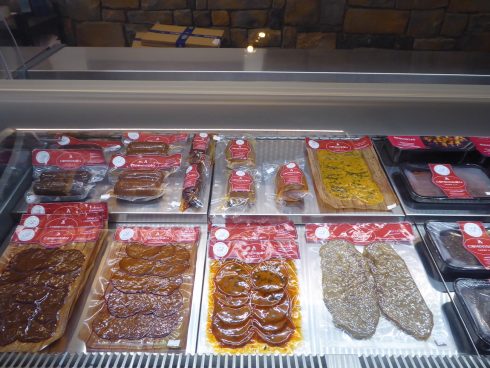
Compasión makes its own products, the result of nine years of experimenting in a country where only 20 years ago, like the classic Monty Python spam sketch, no dish would be complete without ham and pigs ears were a staple in tapas bars.
Meat in Spain is considered nothing short of sacred. According to Greenpeace’s head of the agro-ecological division, Luis Ferreirim, “Spaniards are the biggest meat eaters in Europe. Last year, 910 million animals were slaughtered, which is more than the entire population of the EU; that’s 1,700 animals a minute. Here, we eat an average of 250 grams of meat a day when our weekly quota for a balanced diet should be 300 grams, according to scientists.”
But, when it comes to health, it’s veganism that’s called into question. As Luis points out, “People always point out the deficiencies of a vegan diet. The lack of B12. But they never question the deficiencies that come with a meat-heavy diet which misses out on all the vitamins supplied by plant-based foods.”
Paradoxically, some dyed in the wool meat-eaters end up at the vegan butcher. According to Kevin Mendoza, one of the co-founders of Vegalona in Barcelona, while most of their clientele are between 30 and 50, he does get a number of elderly customers who have been told by their doctors to find an alternative to meat. “They don’t want to,” he says, “So having something that tastes and smells and has the same texture as meat is great for them. It’s part of the protein transition.”
In the “protein transition,” the UK is streets ahead of Spain whose meat consumption measured by the Ministry of Agriculture actually went up 10.2% in the past year fuelling the intensive livestock farming boom. Only 1.3% of Spaniards are either vegan or vegetarian, according to the Lantern Papers, compared to more than 10% in the UK. “We seem to be cutting edge when it comes to LGBTQ+ rights,” says Eduardo. “But in terms of avoiding meat, we lag pretty far behind.”
Not surprising then that the meat industry is Spain’s fourth economic engine and accounts for 14.5% of Spain’s greenhouse emissions, prompting the country’s Minister of Consumer Affairs, Alberto Garzón, to stick his neck out in July to suggest the population curb its carnivorous urges.
Illustrating the clout of the meat-industry’s lobby, the following day, socialist Prime Minister Pedro Sánchez appeared on the news, telling Spaniards that he liked a T-bone steak as much as the next man. “Whenever I am served a T-bone steak cooked to perfection, it’s unbeatable,” he beamed, swiftly backtracking on his Garzón’s courageous stance.
“He was certainly given a prod from the meat lobby,” says Pilar Cervera, owner of Green Meat in San Sebastian in the Basque Country – the first vegan butcher shop in Spain that set up seven years ago. “But the world is changing and the meat industry will have to adapt.”
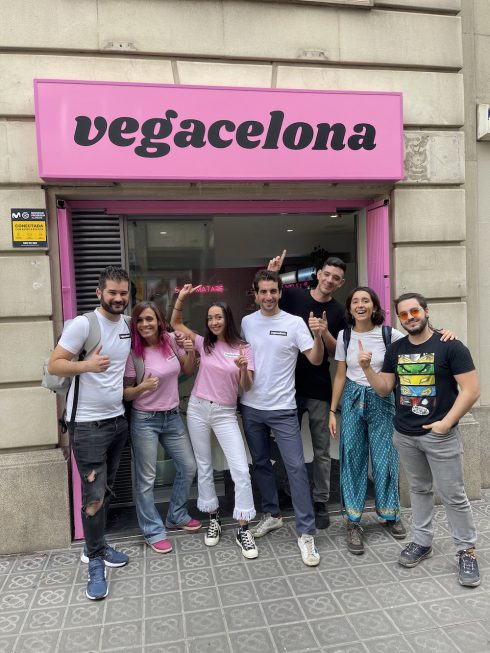
Kevin Mendoza of Vegalona believes some in the meat industry are doing just that, with 20% of their investment now being ploughed into plant-based products. This, he says, has been particularly notable in the past year.
Of course, it doesn’t have to be all or nothing. With Cop 26 looming, Prince Charles, for example, urged the British public to do their bit to stall climate change by taking a leaf out of his book. “For years, I haven’t eaten meat and fish on two days a week and I don’t eat dairy products on one day a week,” he told the BBC at the start of October. “If more did that, you would reduce a lot of the pressure.”
Like Prince Charles, Luis from Greenpeace does not believe meat has to be off the menu entirely. “We need a return to the Mediterranean diet when red meat was at the top of the pyramid and the bottom was plant-based,” he says. “Eating meat should be occasional.”
Vegan butchers could well play a significant role in weaning people off meat just as the sellers of herbal cigarettes have helped some to give up smoking. But none of these butchers themselves are under the illusion veganism will take off over night. “We won’t be around to see the battle against the meat industry won,” says Pilar from Green Meat. “Maybe our children will. But at least we’ve planted the seed.”
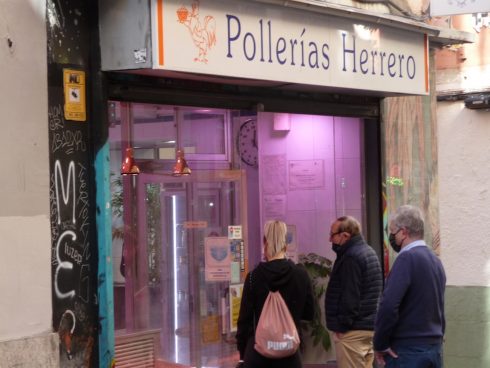
Down the road from Compasión in Madrid, the man behind the counter at the chicken shop is unaware there’s even a war on. “People will always eat chicken,” he tells me. Then, with a glint in his eye familiar to vegans everywhere, he adds, “The people who want to eat that stuff instead of chicken are strange folk.”
READ ALSO:
- Being vegan in Spain: How easy is it?
- Burger King in Spain’s Madrid goes vegetarian
- REVEALED: Spain’s Top 10 vegetarian and vegan cities
Click here to read more Food & Drink News from The Olive Press.

